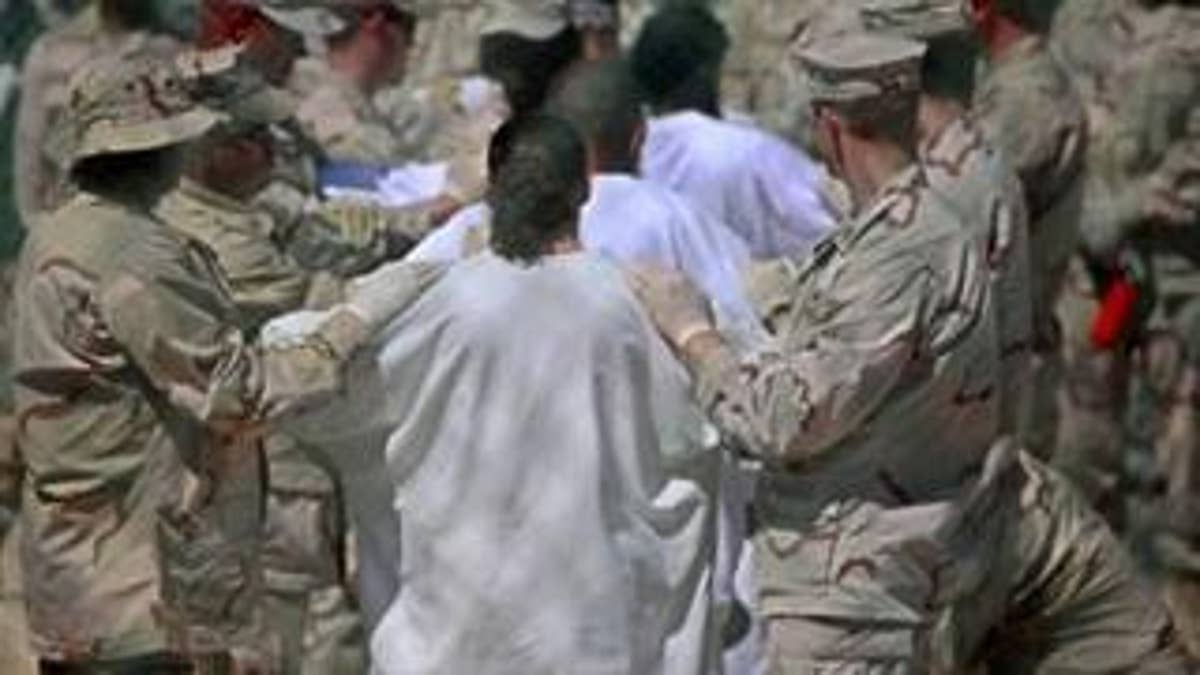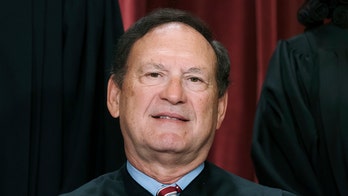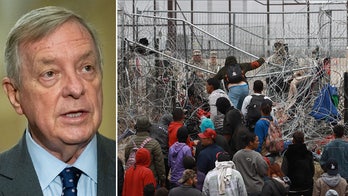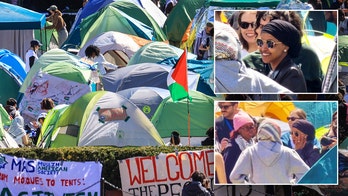
WASHINGTON -- In a scathing attack on the Bush administration, President Obama stood steadfast Thursday in his pledge to close the prison at Guantanamo Bay, Cuba, and transfer some terror suspects to federal "supermax" prisons in the United States.
Accusing the Bush administration of creating "a misguided experiment" that created more threats to America, Obama told an audience at the National Archives in Washington, D.C., that the Guantanamo facility will be shuttered by his deadline of January 2010. He also tried to assure that no prisoners who pose a danger to the U.S. will be set free.
"Let me begin by disposing of one argument as plainly as I can: we are not going to release anyone if it would endanger our national security, nor will we release detainees within the United States who endanger the American people," Obama said.
"Where demanded by justice and national security, we will seek to transfer some detainees to the same type of facilities in which we hold all manner of dangerous and violent criminals within our borders -- highly secure prisons that ensure the public safety. As we make these decisions, bear in mind the following fact: nobody has ever escaped from one of our federal 'supermax' prisons, which hold hundreds of convicted terrorists," he continued.
On Wednesday, the Senate rebuked Obama's request for funding to close the Guantanamo prison, withholding on a 90-6 vote $80 million that would go to shutting down the facility until the president presents a plan for what to do with the remaining detainees. That followed a similar move last week in the House, underscoring widespread apprehension among Obama's Democratic allies in Congress over the issue.
Both Democrats and Republicans have faced an uproar in their districts over the possibility that terror suspects would be housed in local prisons, making it more difficult for administration officials to convince European and Muslim allies to take some of the detainees.
Click here to view more stories and videos about Guantanamo.
The administration got no help Wednesday when FBI Director Robert Mueller told Congress that bringing Guantanamo detainees to the United States could pose a number of risks, even if they were kept in maximum-security prisons. Attorney General Eric Holder quickly responded that Obama would never do anything to endanger Americans.
In announcing the latest approach to Gitmo, Obama offered few concrete details. But he cited Pentagon numbers that show one in seven of the 534 detainees already released from the prison have returned to the battlefield. He used that as evidence that the Bush administration's approach to prosecuting the detainees didn't work.
"We are acutely aware that under the last administration, detainees were released only to return to the battlefield. That is why we are doing away with the poorly planned, haphazard approach that let those detainees go in the past," Obama said.
He said his decision to close Guantanamo did not create the legal challenges that currently exist; those preceded him. But, he said, "if we refuse to deal with these issues today, then I guarantee you that they will be an albatross around our efforts to combat terrorism in the future."
The president announced five categories of prisoner that the administration will use to evaluate the 240 detainees who are still at Guantanamo:
-- Those who have violated American criminal laws and will be tried in federal courts;
-- Those who violated the laws of war and are best tried through military commissions;
-- Those who have been ordered released by the courts;
-- Those who can be transferred safely to another country;
-- Those who cannot be prosecuted, but pose a clear danger to the American people.
Obama defined the final category as detainees who have trained at Al Qaeda camps, commanded Taliban troops in battle, expressed allegiance to Usama bin Laden or "made it clear that they want to kill Americans."
"I want to be honest: this is the toughest issue we will face," Obama said of the final category. "We are going to exhaust every avenue that we have to prosecute those at Guantanamo who pose a danger to our country. But even when this process is complete, there may be a number of people who cannot be prosecuted for past crimes, but who nonetheless pose a threat to the security of the United States."
Early Thursday, Holder announced that the first Al Qaeda suspect held at Guantanamo Bay will be sent to New York to stand trial for the deadly 1998 bombings of U.S. embassies in Africa. The suspect, Ahmed Ghailani, will stand trial in a civilian criminal court.
"This guy was picked up on the battlefield in Afghanistan," said Rep. Pete Hoekstra, R-Mich., the ranking Republican on the House Intelligence Committee. But since Ghailani was linked to the embassy bombings, he is being prosecuted on U.S. soil.
"That same kind of evidence, those same kinds of standards weren't in place and aren't in place for many of the other guys," Hoekstra said.
The president used strong language to condemn the Bush administration, claiming a "flood of legal challenges arose" because of how the Guantanamo facility was used. He said those challenges consume the time of "government officials whose time should be spent on better protecting our country."
"The Supreme Court that invalidated the system of prosecution at Guantanamo in 2006 was overwhelmingly appointed by Republican presidents," Obama said. "In other words, the problem of what to do with Guantanamo detainees was not caused by my decision to close the facility; the problem exists because of the decision to open Guantanamo in the first place."
The president said he would refuse "to allow this problem to fester," or for politicization of the issue to prevent solutions. He accused his opponents of "fear-mongering" by suggesting that bringing prisoners to the U.S. will threaten Americans.
"Listening to the recent debate, I've heard words that are calculated to scare people rather than educate them; words that have more to do with politics than protecting our country," he said.
The president rejected the idea of an independent commission that would investigate the whole range of national security issues under the Bush administration.
"I know that these debates lead directly to a call for a fuller accounting, perhaps through an independent commission," he said. But "our existing democratic institutions are strong enough to deliver accountability," he said.
However, Obama's coming up with a plan without congressional input is also a non-starter to some.
"I hope the president doesn't announce a plan for Guantanamo today. You know why? Because if he does, he will have developed a plan, and he will never have consulted with Congress, either Republicans or Democrats, as to what that plan should be," Hoekstra said.
"It's a tough issue ... we ought to be working together to get a resolution to this," he added.
Immediately after Obama spoke, former Vice President Dick Cheney, a strong supporter of the Guantanamo facility, spoke at the conservative American Enterprise Institute.
Cheney had been invited to speak months before, but the timing of the two speeches set up a contrast in the two administrations' approaches. Cheney praised Obama's decision to withhold photos of alleged abuse of detainees by U.S. military abroad.
But he added, "When he faults or mischaracterizes the national security decisions we made in the Bush years, he deserves an answer."




